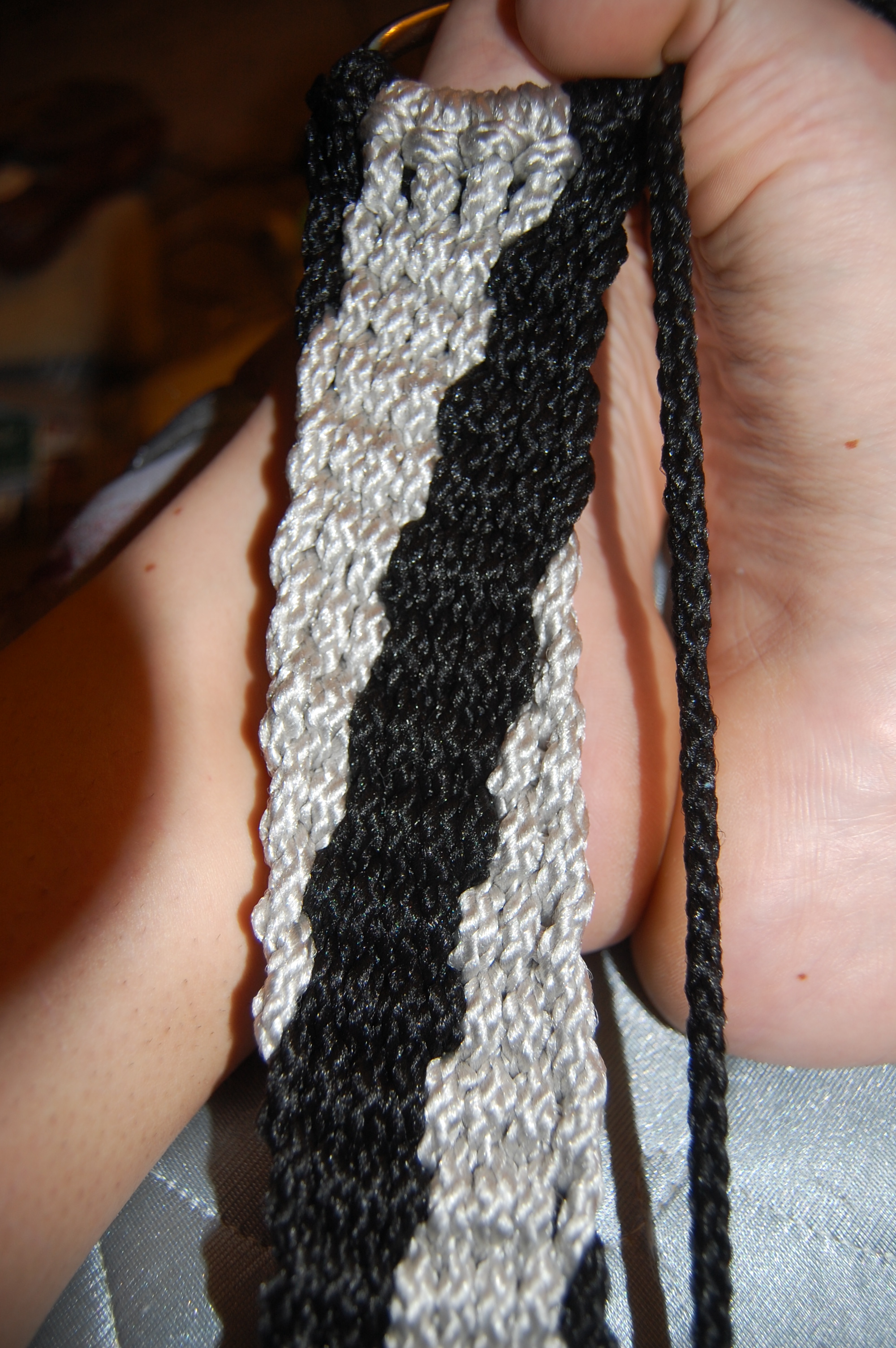Difference between revisions of "Macrame belt"
m (Update links. Use Wayback Machine for the Finger Weaving tutorial which is no longer available. Minor typos.) |
m (link to archived tutorial for images) |
||
| Line 33: | Line 33: | ||
*[https://web.archive.org/web/20180813040715/http://www.northwestjournal.ca/sash.html Finger weaving tutorial] | *[https://web.archive.org/web/20180813040715/http://www.northwestjournal.ca/sash.html Finger weaving tutorial] | ||
*[https://www.nativetech.org/finger/beltinstr.html Finger weaving tutorial], along with diagrams | *[https://www.nativetech.org/finger/beltinstr.html Finger weaving tutorial], along with diagrams | ||
| − | *[https://thisyearsdozen.wordpress.com/2008/05/14/how-to-macrame-a-belt/ Macrame belt instructions] | + | *[https://web.archive.org/web/20140113110017/https://thisyearsdozen.wordpress.com/2008/05/14/how-to-macrame-a-belt/ Macrame belt instructions] |
[[Category:Arts and Sciences]][[Category:Amtgard Things]][[Category:Garb]] | [[Category:Arts and Sciences]][[Category:Amtgard Things]][[Category:Garb]] | ||
[[Category:Garb Accessories or Embellishments]] | [[Category:Garb Accessories or Embellishments]] | ||
Latest revision as of 19:54, 11 February 2023
Macrame belts are belts made using the technique of macrame, which knots thick cord in colorful patterns. Colloquially, "macrame" often also refers to woven belts using the same cord.
Contents
In Amtgard
Less sturdy but often times more colorful than leather belts, macramé and woven belts are a common addition to any Amtgard wardrobe.
Making a macrame belt
Main article: Macrame
Although the end products appear lightly similar, macrame and woven belts require different techniques to complete.
Woven belts require no knots other then to finish the belt, are less time consuming and require less cord in their making. The drawbacks are that the finished belts are less durable and more prone to stretching and loosening of the cords as time goes by. A woven belt can be finished in a relatively quick time frame, and is very easy to learn.
Macramé Belts, by comparison represent a much larger time investment and use more than three times the cord that a woven belt does. However, macramé belts are sturdier, last longer and are less prone to loosening and stretching.
Cord
Macramé cord comes in a variety of styles, from braided to twisted, and in various sizes. The most ideal for Amtgard belts is cord that is 6mm wide, though thinner cord can be used for more delicate designs. It can be found in most craft stores, although many stores carry a limited selection of colors. The cord is made in solid colors in a variety of shades, as well as many two- and three- colored mixtures.
Most macramé cord is washable, although if you are using a variety with metallic threads you will want to be a bit more careful: metallic fibers tend to stretch easily and will not spring back into shape. The safest method of washing a belt is by hand with a gentle detergent. Remember that colors bleed; if possible always test wash a small section of cords to check for color fastness.
Belt rings
Belt rings can be found at most leathers stores, as well as some craft stores and home improvement stores. Rings come in a variety of sizes and are usually found in silver or gold color, although there are also solid plastic rings in many colors that work just as well and can add to the overall theme of the belt.
Finishing the belt
There many ways to finish the belt; you can simply take all the cords and tie them in a knot, then trim the ends. Another option is to wrap one cord around the others many times, then secure it by pulling it through the wrap and tying it off, in what is called a wrap knot. This is a matter of taste, and experimentation can produce other methods.
Sealing the ends of the cord is a good idea, as they will fray. The easiest method is to apply heat to the ends using a lighter or matches to melt the threads together. This needs to be done carefully and with a light hand when working with lighter colored cords, as they will scorch and blacken the ends if too much heat is applied. It is a good idea to experiment with this when using white cords with some spare lengths to discover the right amount of heat. Another method is to seal the ends with hot wax, although this will eventually flake or chip off and need to be redone.
Links
- Friendship bracelet patterns, which can be adapted for a macrame belt
- Macrame knots, including knots to attach belt rings
- Finger weaving tutorial
- Finger weaving tutorial, along with diagrams
- Macrame belt instructions
